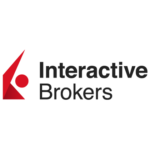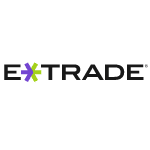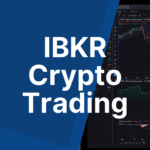I saw on Instagram the other day that Interactive Brokers claims to have the lowest commission for micro and mini futures trading. And that got me thinking, what are the best brokers for micro and mini futures trading, especially if you are a beginner. Micro and mini futures are great for beginners because you can trade in smaller size. Most futures brokers give you access to the main future contracts, but with the exception of the mini S&P which is one of the most heavily traded contracts, in the World, mini and micro futures are not are widely available.
If you are looking for a mini or micro futures broker in the US, you can compare trading costs and market access in the comparison table below.
| Futures Broker | Commission (Micro) | Commission (Mini) | Customer Reviews | More Info |
|---|---|---|---|---|
 | $0.10–$0.25 per contract | $0.25–$0.85 per contract | Visit Broker | |
 | $0.49 to $0.89 per lot | $0.49 to $0.89 per lot | Visit Broker | |
 | $2.25 per contract | $2.25 per contract | Read Reviews | |
 | $1.50 per contract, per side | $1.50 per contract, per side | Read Reviews | |
 | $0.50 - $0.75 | $0.50 - $0.75 | Read Reviews | |
 | $2.45 per contract | $2.45 per contract | Read Reviews | |
 | N/A | N/A | Read Reviews | |
 | $0.25 per contract | $0.75 per contract | Read Reviews |
Interactive Brokers (IBKR): Offers the lowest commissions, especially beneficial for high-volume traders. Provides extensive market access across various exchanges. Trader Workstation (TWS) is highly customizable and suitable for advanced traders.
Plus500: Offers both micro and mini futures with competitive pricing. Provides access to various equity indices and is known for its user-friendly platforms. Known for its intuitive web and mobile platforms, making it accessible for traders at all levels.
Charles Schwab: Charges a flat $2.25 per contract, making it straightforward but potentially more expensive for frequent traders. Offers broad market access, including major indices and commodities. thinkorswim offers robust charting tools and is favored by active traders.
E*TRADE: At $1.50 per contract per side, it presents a mid-range commission structure. Provides access to a wide array of futures contracts, including cryptocurrencies and commodities. Power E*TRADE provides intuitive tools and is user-friendly for both beginners and experienced traders.
Robinhood: Introduced futures trading recently with competitive pricing, especially for Gold members. However, its market access is currently limited to select futures contracts like the S&P 500, oil, and Bitcoin. The new Robinhood Legend platform aims to cater to active traders with advanced tools, though its futures offerings are currently limited.
Fidelity: Does not currently offer futures trading. Investors seeking futures exposure would need to consider alternative brokers.
Webull: Provides low-cost access to a range of micro and mini futures contracts. Its platforms are geared towards both novice and experienced traders. Offers advanced charting tools and a user-friendly interface suitable for both novice and experienced traders.
What are Micro and Mini Futures?
Micro futures are a smaller, more accessible version of standard futures contracts. They allow traders to participate in futures markets with lower capital requirements, making them ideal for individual or beginner traders.
Pros:
- Lower risk exposure
- Better suited for small portfolios
- Great for learning futures without high stakes
- More flexibility in position sizing and risk management
Cons:
- Lower tick value which means smaller profit potential per move
- Still leveraged products that are high risk
- Fewer institutional players (but still very liquid)

Richard is the founder of the Good Money Guide (formerly Good Broker Guide), one of the original investment comparison sites established in 2015. With a career spanning two decades as a broker, he brings extensive expertise and knowledge to the financial landscape.
Having worked as a broker at Investors Intelligence and a multi-asset derivatives broker at MF Global (Man Financial), Richard has acquired substantial experience in the industry. His career began as a private client stockbroker at Walker Crips and Phillip Securities (now King and Shaxson), following internships on the NYMEX oil trading floor in New York and London IPE in 2001 and 2000.
Richard’s contributions and expertise have been recognized by respected publications such as The Sunday Times, BusinessInsider, Yahoo Finance, BusinessNews.org.uk, Master Investor, Wealth Briefing, iNews, and The FT, among many others.
Under Richard’s leadership, the Good Money Guide has evolved into a valuable destination for comprehensive information and expert guidance, specialising in trading, investment, and currency exchange. His commitment to delivering high-quality insights has solidified the Good Money Guide’s standing as a well-respected resource for both customers and industry colleagues.
To contact Richard, please ask a question in our financial discussion forum.



